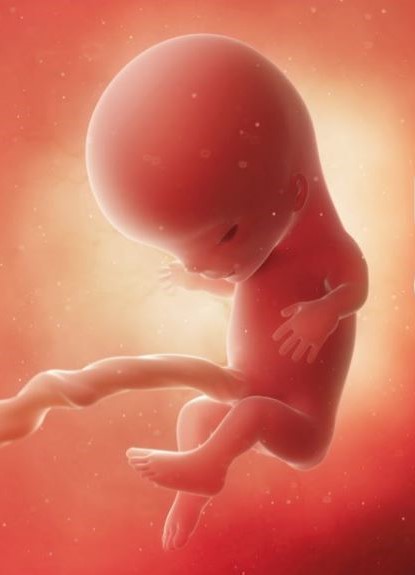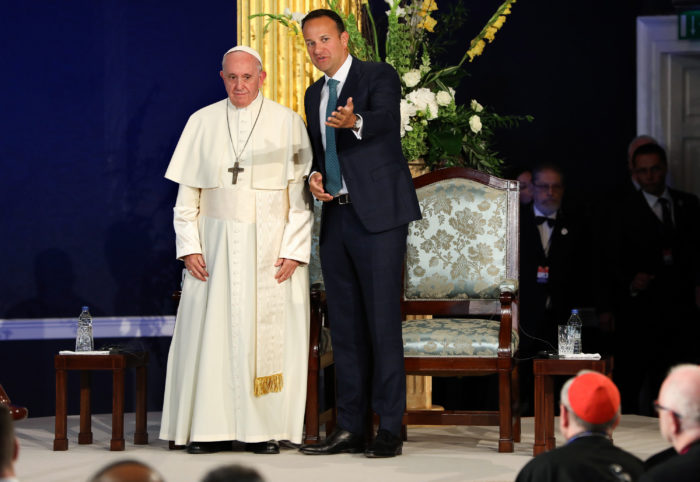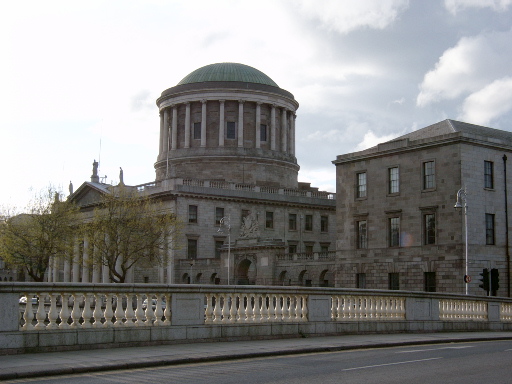
The Government’s proposal to totally remove the offence of blasphemy from both the Constitution and statute law would render as protected speech even the most vile denigrations of religion, former Attorney General, Michael McDowell, has said.
Speaking in the Seanad, Senator McDowell said that repealing the blasphemy provisions of the Defamation Act will mean nobody, in any circumstances, can ever be prosecuted for publishing something offensive to religious sensibility no matter how gross or grotesque. This would, he said, declare it absolutely “open season to say or do anything in public which outrages religious sentiment.”
Mr McDowell said he thinks most people do not know this is the intention of the Government, nor would they support it even if they knew. “I do not believe that the people would be happy to see every single vestige of protection of religion from premeditated and vicious blasphemy swept away in the name of liberalism – and I speak as a liberal on that. People are entitled to have some basic standards of decency or public morality enshrined in the law with regard to the protection of religion. It is not a great expansion of freedom to tear down every barrier surrounding the sacredness to individuals of their religious beliefs”.

More than 11 million U.S. parents – or 18% – were not working outside the home in 2016, according to a new Pew Research Center analysis of U.S. Census Bureau data.
The stay-at-home share of U.S. parents was almost identical to what it was in 1989, but there has been a modest increase among fathers. The share of dads at home rose from 4% to 7%, while the share of moms staying at home remained largely unchanged – 27% in 2016 versus 28% about a quarter-century earlier. As a result, 17% of all stay-at-home parents in 2016 were fathers, up from 10% in 1989.
A growing share of stay-at-home fathers say they are home specifically to care for their home or family, suggesting that changing gender roles may be at play. About a quarter (24%) of stay-at-home fathers say they are home for this reason. Stay-at-home mothers remain far more likely than dads to say they are home to care for family – 78% say so.

It will be 2019 before all pregnant women are automatically offered an anomaly scan to find out if their unborn baby suffers from a serious, terminal condition. The anomaly scans were meant to be made far more widely available on time for the new abortion legislation, which is due to come into force in January so as to allow women, whose baby has been diagnosed with such a condition, to abort the baby in a clinic or hospital in this country.
Only seven of the 19 maternity hospitals provide the 20-week scan as a routine. A partial service is provided in five others, where it is clinically indicated by a doctor but there is no anomaly scanning, according to the most recent survey.
There had been a plan to hire an additional 28 ultrasonographers, who deliver the scans, this year but it will be 2019 before full access is provided, according to the HSE’s Kilian McGrane in a response to Sinn Féin spokeswoman on health Louise O’Reilly.

Divorce rates among recently married couples in the UK have dropped to their lowest levels in almost thirty years, a new study has found. The drop coincides with a rise in the rate of cohabitation.
Figures from the Marriage Foundation show the number of couples divorcing after three years has more than halved, while among those who have stayed married for at least five years, divorce is down by more than a third (39 per cent). For those who have been together for more than a decade the rate is down by a fifth.
Harry Benson, research director of Marriage Foundation, told The Times: ‘Among all the talk of divorce and law reform, it’s easy to miss the good news story that today’s marriages are more stable than at any time since the 1970s. ‘Some level of relationship failure is inevitable. But today’s falling divorce rates contrast with far higher break-up rates among couples who don’t marry.’
Sir Paul Coleridge, founder and chairman of Marriage Foundation, said: ‘For those of us who are in the long-term business of confronting and combatting the national scourge of family breakdown, with all its attendant pain and suffering for children, it is rare to encounter genuinely good news.’

A professor of neurophysiology in Sweden is being investigated by his university for teaching that the differences between male and female behaviour sometimes has a natural basis rather than being fully explained by factors like upbringing.
According to the Sweden-based Academic Rights Watch, Prof. Germund Hesslow, has taught a course for years on “Heritage and Environment” in the Lund University medical program. In that course, he has addressed such topics as biological gender differences.
The watchdog organisation reports that Hesslow would sometimes be questioned by students who dislike that his teaching is not based on “the gender scientific approach adopted in politics.” Hesslow maintains that gender is not entirely socially constructed because empirical research has found that there are statistical gender differences in behavior that are biologically based.
He was asked by school administrators this month to apologize after his remarks drew the ire of feminist students.
In a statement emailed to The Christian Post about Hesslow’s claims, Lund University’s international press officer, Lotte Billing, said there has been criticism levelled against a lecture entitled ‘Nature, nurture and the biology of sex differences’ given at the medical program at Lund University. She confirmed that, ‘Lund University is currently investigating if the specific lecture was offensive in any way’.

Religious people are more tolerant of different viewpoints than atheists, according to just published research.
A study of 788 people in the UK, France and Spain concluded that atheists and agnostics think of themselves as more open-minded than those with faith, but are actually less tolerant of differing opinions and ideas. Religious believers “seem to better perceive and integrate diverging perspectives”, according to psychology researchers at the University of Louvain (UCL), Belgium’s largest French-speaking university.
Filip Uzarevic, who co-wrote the paper, admitted his surprise at the finding that, “when it came to subtly measured inclination to integrate views that were diverging and contrary to one’s own perspectives, it was the religious who showed more openness.”
Dr Uzarevic’s paper, called “are atheists undogmatic?”, examined mental rigidity in three different groups: atheists and agnostics; Christians; and a group of Buddhists, Muslims, and Jews. The study claims that non-believers measured lower than religious people in “self-reported dogmatism”, but were higher in “subtly-measured intolerance”.

The Minister for Health, Simon Harris, used social media to hit back at pro-life writers who had argued over the weekend that the Government’s proposed abortion bill is too radical and needs to be amended.
Writing on Twitter, Mr Harris said a “few opinion pieces in Sunday papers today attempting to re-run or re-fight referendum on the 8th. We had the Referendum. The people spoke. They had lot of information in advance of making their decision – including a detailed draft law. Time to get on with it and pass the law.”
During the campaign, the head of the Referendum Commission, Judge Isobel Kennedy, stressed the people were voting solely on whether or not to repeal the 8th amendment, and not on the proposed legislation.
Breda O’Brien begun the critique of the Government’s plans in a piece in the Irish Times on Saturday noting that pro-choice campaigners already want to abolish even the meagre restrictions the bill would impose. David Quinn wrote in the Sunday Times that there is far less support for the Govt’s radical legislation than for repealing the Eighth Amendment according to RTE’s extensive exit poll done on the day of the referendum itself. Finally, Wendy Melady wrote in the Sunday Independent that the Government want to supply abortion free of charge but not genuine medical treatments.
As if to prove her point, the Times Ireland on Monday confirmed that this year’s budget will include new expenditure to pay for abortion. The paper also reported that Mr Harris on Saturday will join a March for Choice which is dedicated to calling for ‘free, safe and legal’ abortion provision.

The Government will not change the forthcoming abortion legislation to shorten or abolish the proposed three-day waiting period before an abortion could be executed, the Minister for Health has said. Pro-choice advocates such as Dr Peter Boylan have been saying the waiting period should be eliminated.
Dr Boylan, chairman of the Institute of Obstetricians and Gynaecologists, and a leading campaigner against the pro-life amendment, had argued before the Oireachtas health committee on Wednesday that the waiting period was “demeaning” to women and “makes presumptions about women’s ability to make decisions about their own healthcare”.
The waiting period is part of the draft legislation published by the Government before the referendum. The Government’s view is that people voted in the referendum having considered the draft legislation, and that it should not be changed at this stage, Mr Harris’s office said.
Mr Harris will also refuse amendments which pro-life TDs have proposed, providing for a conscientious objection for doctors who do not wish to execute an abortion themselves or refer patients to another doctor to execute the procedure.

The failures of both Church and State that caused a ‘legacy of pain and suffering’ in Ireland were discussed by the Taoiseach, Leo Varadkar, and Pope Francis at their recent meeting at Dublin Castle. There is no indication that the Pope raised issues with Mr Varadkar such as the elimination of the right to life of the unborn from the Constitution.
The Taoiseach spoke about the meeting in the Dail on Tuesday, telling Deputy Richard Boyd Barrett that he welcomed Pope Francis “who thanked me for the warm welcome he had received on arrival.” He said that the meeting “provided an opportunity for both of us to discuss a number of issues, though regrettably not in any great depth because of the short duration of the meeting.” He continued: “We spoke of the legacy of pain and suffering caused by the failures of the Church and State in Ireland. We discussed that Ireland is still a country with strong faith but that there is still much to be done to bring about justice and truth and healing for victims and survivors.”
The Taoisach said he also thanked the Pope for his statements on climate change, accepting refugees and international development. They also spoke of Irish missionaries, how they continue their work today, and also about the Pope’s home country of Argentina and the role of Irish missionaries there.
The Taoiseach finished by emphasising that he also used the opportunity during his speech later that day to expand on these issues and to express his strong wish that “words need to be followed up by actions.”

Removing the offence of blasphemy from the Constitution will confirm Ireland’s status as a modern democratic society where free speech is ‘valued’ and multiculturalism is ‘embraced’, Minister for Justice Charlie Flanagan said.
Mr Flanagan was speaking in the Dail as he introduced legislation to allow a referendum take place on the issue on October 26th. He said as long as the offence remained in the Constitution, Ireland would be seen internationally as “a country which keeps company with those who do not share the fundamental values we cherish such as belief in freedom of conscience and expression”.
The House passed the 37th Amendment of the Constitution (Repeal of offence of publication or utterance of blasphemous matter) Bill without a vote and the legislation now goes to the Seanad.
If the referendum is approved by the people, Article 40.6.1°.i will then state: “The publication or utterance of seditious or indecent matter is an offence which shall be punishable in accordance with law.”
Labour TD Sean Sherlock and People Before Profit TD Richard Boyd Barrett questioned the retention of the offences of indecent and seditious matter.
Mr Boyd Barrett said: “One person’s sedition is another person’s completely legitimate criticism of institutions of the State or of society, or of particular laws. And the work of many of the best writers of this country was considered ‘indecent’, including that of James Joyce.”
The Minister said however that sedition and indecent matter were covered by law and it was right to have laws for offences such as the production and distribution of child pornography.